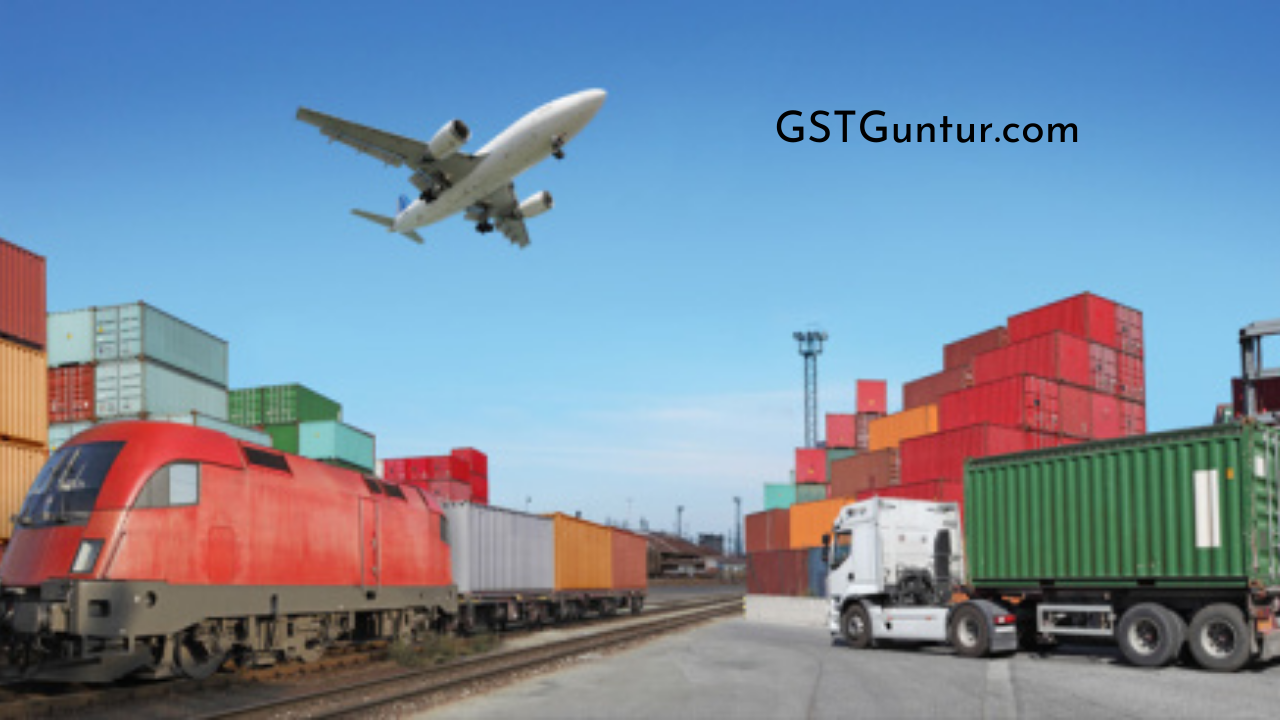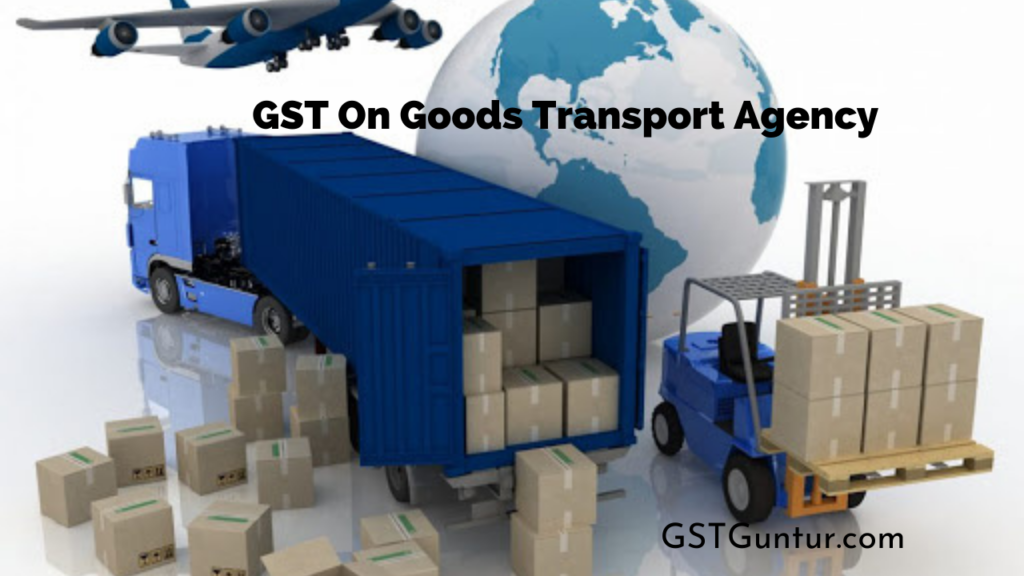GST On Goods Transport Agency: Transportation is one of the principal parts of an economy. Now there are many confusions among the GST provisions, and one of the confusion is on the applicability of GST on Goods Transport Agency. Every individual who deals in goods transport needs to list their service. It is already listed among the list of services in which GST is payable on reverse charge when any services are provided to a registered person.
- GST Application On GTA
- Rate Of GST
- Registration Requirements
- How To Confirm Inter-State Or Intra-State Supply Through Place Of Supply?
- Duties Of Transporter For E-way Bill
GST Application On GTA
As per Notification no. 12/2017-Central Tax (Rate) Serial No. 18 dated 28.06.2017, individual tempo or truck operators who do not issue consignment notes from GST are exempted. Therefore, it is mandatory for goods transport agencies who issue consignment notes or use the transport fleet of others. They are working only as an agency are liable to pay GST.
If goods are transported using non-motorized vehicles, such as rickshaws, such individuals are exempted from GST payment.
Rate Of GST
Goods Transport Agency is entitled to a GST rate of 5%. In such cases, it is not allowed to take the input tax credit (ITC) on the amount paid for GST on goods or services or both, which are used in supplying such services.
If the person wants to take the input tax credit (ITC) on the amount of GST paid, then the person can opt for an option where the person is required to pay GST at 12% and then can opt for an input tax credit on all inputs. [As per Central Government Vide Point no. (iii) Of Notification No. 20/2017-Central Tax (Rate) dated 22.08.2017]. In such cases, the Goods Transport Agency (GTA) is liable to pay GST on all services provided by the agency, and a reverse charge won’t be applicable.
Services Taxable At NIL Rate
There are certain services that are taxable at the NIL rate for GTA and are as follows:
- Agricultural produce
- Any relief materials for casualties of calamities, natural or man-made disasters, mishaps, or accidents.
- Salt, milk, and food grains, including rice, flour, and pulses.
- Organic manure for agricultural purposes.
- Equipment related to military or defense purposes.
- Magazines and newspapers registered with the Registrar of Newspaper.
- Such goods where consideration is charged for transporting all goods for a single consignee is not more than ₹750.
- Such goods where consideration is charged for the transportation of goods on a consignment basis in a single carriage is not more than ₹1,500.
- Any services provided to an unregistered person by a goods transport agency, including an unregistered taxable person other than persons covered under a reverse charge basis.
Charging Of GST Under Reverse Charge Basis
Below provided is the list of persons liable to taxes on a reverse charge basis if the goods transport agency has not paid GST at the rate of 12% for the supply of services.
- Any corporate body that is established by or under any law.
- Any factory governed by or registered under Factories Act, 1948.
- Any society registered under the Societies Registration Act, 1860 or any law for the time being in force in any parts of India.
- Any person registered under the Central Goods and Services Act or the State Goods and Service Act or the Union Territory Goods and Services Act, or the Integrated Goods and Services Act.
- Any co-operative society registered or established under any law.
- Any partnership firm registered under any law or not, including the association of persons.
- Any unregistered casual taxable person.
For those categories which do not fall above, it is the liability of the goods transport agency to pay GST.

Registration Requirements
Individuals with a turnover of more than ₹20 lakhs in a financial year are liable to register for GST. This limit of turnover is reduced to ₹10 lakhs for special category states.
However, as per Central Government vide Notification No. 5/2017-Central Tax dated 19/06/2017, it is exempted for such persons who are supplying taxable goods or services or both. The total tax is liable to be paid on a reverse charge basis by the recipient of such goods or services or both, even if the turnover exceeds the exemption limit.
Therefore, if a Goods Transport Agency provides all its services to a registered person only, then such Goods Transport Agency is not liable to register even if the turnover exceeds the specified exemption limit of ₹20 lakhs or ₹10 lakhs.
According to Section 23(2) of CGST Act, if a person or an individual is engaged exclusively in the business of transporting or supplying goods or services or both that are not liable to taxation or are wholly exempted from tax, it is not mandatory for such person or individual to take registration. For example, if a Goods Transport Agency is engaged in supplying services to farmers regarding agricultural produce, it is not mandatory for such an agency to register.
The goods transport agency is not entitled to the benefits of the composition scheme.
How To Confirm Inter-State Or Intra-State Supply Through Place Of Supply?
Section 7(3) of the IGST Act states that the supply of services shall be treated as inter-state trade or commerce when the location of the supplier and the place of supply are in–
- Two different Union Territories;
- Two different States;
- Between a State and a Union territory,
The supply is considered an intra-state supply when the supplier’s location and supply are in the same state or union territory.
The place of supply on transportation of goods by road is determined by the following:
- If the supply of goods is made to a registered person, then the location of such person;
- If the supply of goods is made to a person other than a registered person, then the location of handing over such goods for transportation.
Duties Of Transporter for E-way Bill
The transporter is required to generate a new E-way bill beforehand in Form GST EWB-01 if there is a transfer of goods from one vehicle to another in the course of transit.
Conveyance details need not be furnished when the transported goods from the transporter’s place to the business place are less than 10 km.
If the transporter transports multiple consignments of goods in one vehicle, then the indication of serial numbers of e-way bills generated is required of each such consignment. The transporter also has to generate a new consolidated e-way bill in FORM GST EWB-02 before the transportation of such goods.
The transporter needs to generate Form GST EWB-01 based on bill of supply, invoice or delivery challan when the consignor of goods does not generate the e-way bill, and the value of goods exceeds ₹50,000.
A special class of transporters needs to obtain a special Radio Frequency Identification Device (RFID) and get the said device embedded onto the conveyance vehicle and map the e-way bill to the RFID tag before transporting goods as and when notified by the commissioner.
